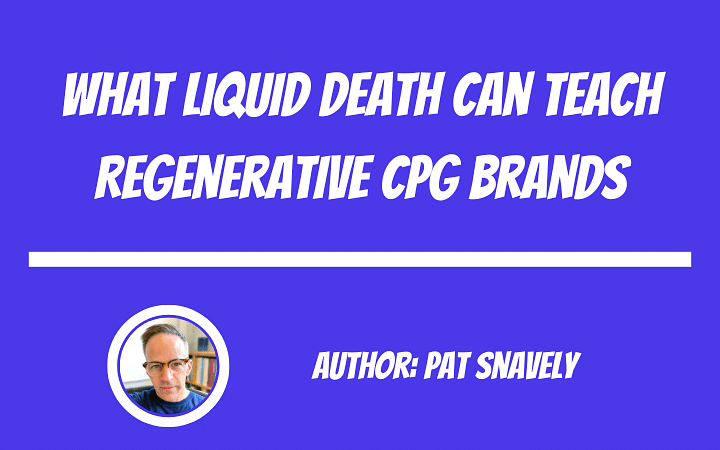
Mission Isn't Magic
I had an aha moment at Expo West last year.
As I roamed the busy halls, I found myself swatting off free water samples from dozens of brands (now in cans!). They all shared an environmental marketing angle — ”Earth” this…“Cloud” that…”Nature” something-or-other.
Each as unremarkable as the last.
Then there was the Liquid Death booth. A crowd was gathered around, snatching cans as fast as they could be pulled out of the coolers. Rabid…for canned water!
And it dawned on me.
This was a Trojan Horse Strategy.
And it was working.
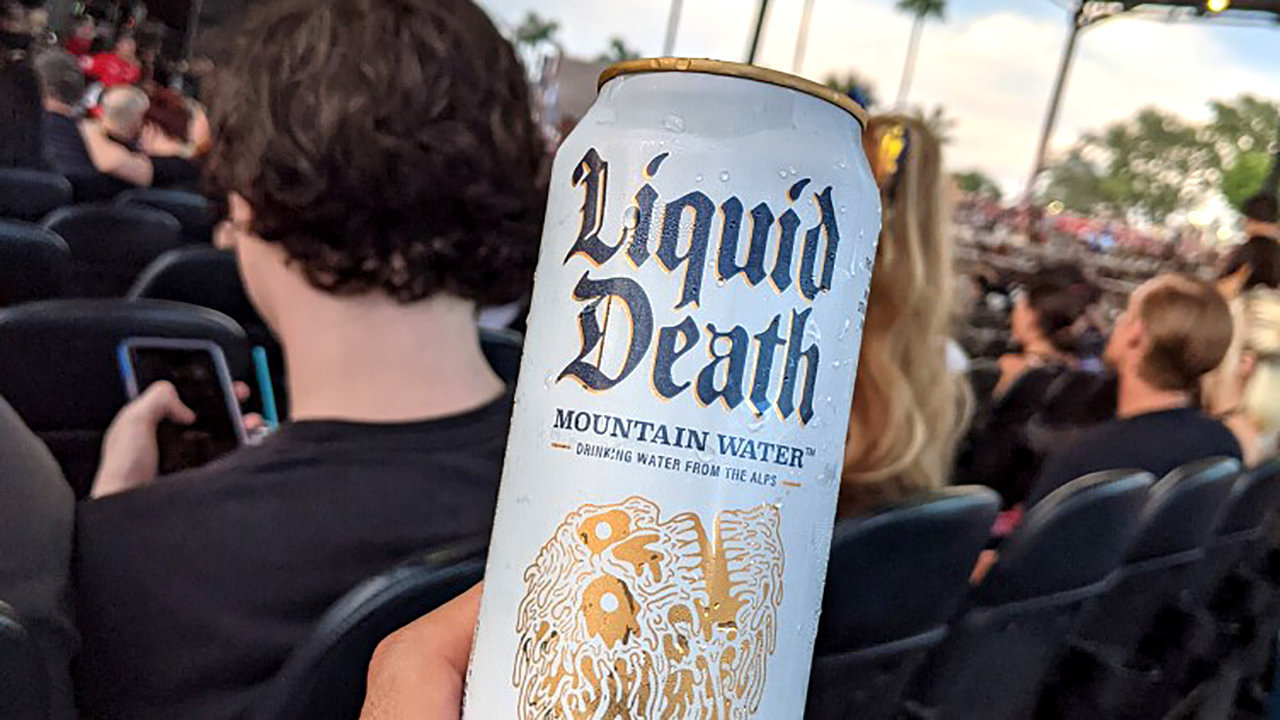
Aim for the Heart, Not the Head
A Trojan Horse Strategy is when a deeper message is hidden behind the hook. And I’ve noticed that a few of the most savvy mission-driven companies are starting to embrace it.
To be clear, I don’t really consider Liquid Death to be a mission-driven brand. Their “Death to Plastic” tagline seems convenient at best.
But their approach still illustrates my point about effecting cultural change.
Liquid Death was not educating people about why water in cans is better for the planet. They were entertaining them. And in the process, they were shifting consumer behavior, likely without people even thinking much about the change they had just made.
Liquid Death wasn’t marketing “sustainability” claims like all of its competitors. Instead, they just made it fun to walk around with an aluminum water can that screams “heavy metal”.
They’re breaking all the rules. And that’s a fun thing to take part in.
This is a powerful marketing lesson for regenerative brands — aim for the heart, not the head.
Stop Making Sense
I’m not referring to Liquid Death’s irreverent tone. Rather, I’m talking about their focus on the primary purchase drivers of fun and belonging. That’s the clever positioning strategy.
When marketing a mission-driven brand, the natural urge is to shout loudly about the righteous work you’re doing. But Liquid Death says that part pretty quietly. In fact, environmentalism is rarely credited for their explosive growth. But nonetheless, they’re rapidly stealing market share from the old guard in plastic bottles.
The challenge with marketing “sustainability” is that it’s become cliche. It feels unimaginative. And there’s an awful lot of noise out there.
In order for mission-driven consumer brands to be culturally relevant (read: commercially viable), they must leverage the most basic human impulses.
Remember Maslow’s Hierarchy of Human Needs:
1) Physical needs are at the bottom.
2) Emotional in the middle.
3) And Intellectual at the very top.
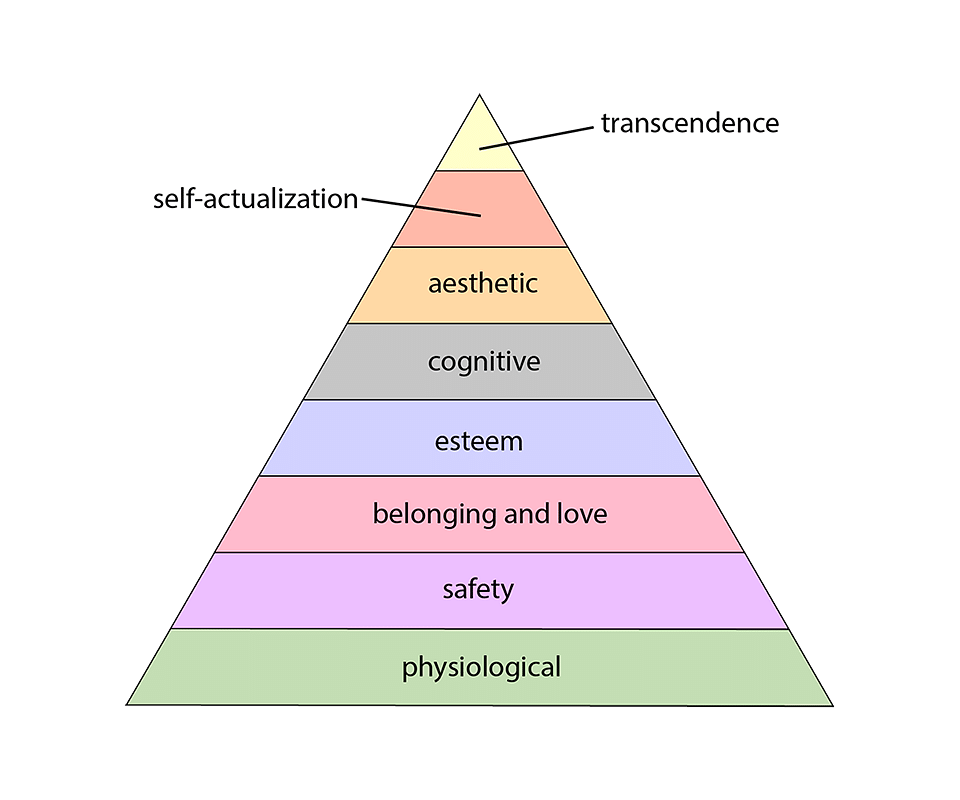
I’d argue that regenerative agriculture belongs at the top of Maslow’s pyramid. It’s a complex idea rooted in altruism. Which is great! But abstract. And definitely not the first thing in a consumer's mind when making a purchase.
Liquid Death is trading on the emotional needs of Belonging (connection to culture) and Esteem (status and personal identity). Powerful stuff.
Make Change Enjoyable
I took this lesson to heart last year when I co-founded Mt. Joy, a fast-casual restaurant concept that serves pasture-raised fried chicken sandwiches.
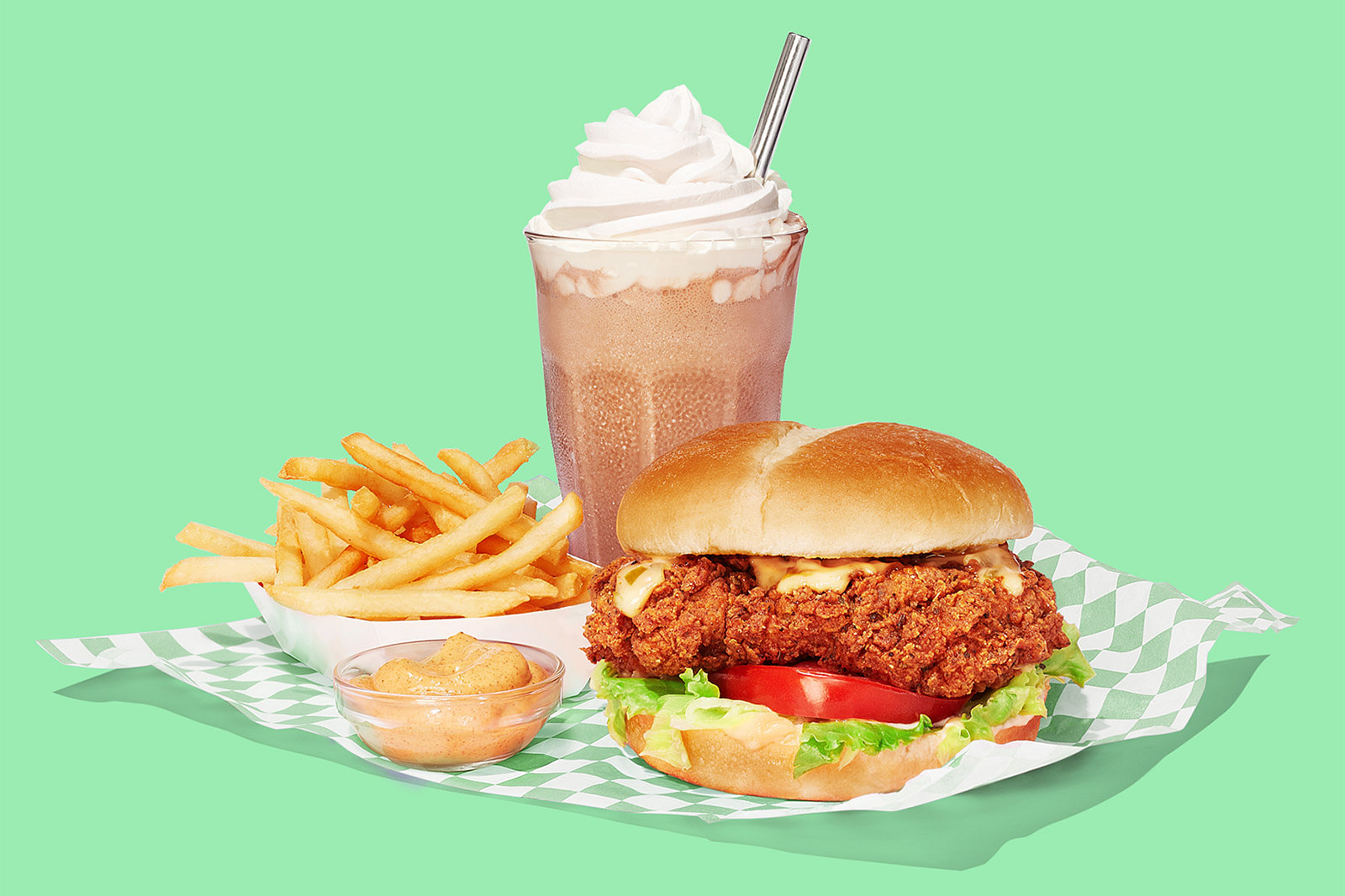
(Photo: Melissa O’Hearn for Mt. Joy)
We started Mt. Joy with the mission of scaling regenerative agriculture. It’s literally the reason the company exists — to create consumer demand that drives supply and helps reshape the food system.
The business itself is a Trojan Horse Strategy, as many people would question how eating a fried chicken sandwich is a form of climate action. But when you consider the source, it absolutely can be.
But the Mt. Joy mission will only succeed in creating true impact if we reach a large scale.
As CMO, I quickly discovered the challenges with marketing “regenerative agriculture” products. Awareness is still low. And in our case, there’s a pretty big conceptual gap between a decadent fried chicken sandwich and soil health.
So I decided to promote Enjoyment Activism (a term I made up, TM).
We didn’t call the brand Earth-this or Farm-that. We called it, Mt. Joy, a name inspired by a small town in Lancaster County, PA where my dad grew up on a dairy farm.
But that’s not why I chose the name.
I wanted people to come to the restaurant, not out of a high-minded sense of duty, responsibility, or guilt. But rather because of excitement. I wanted the brand to quite literally stand for…joy.
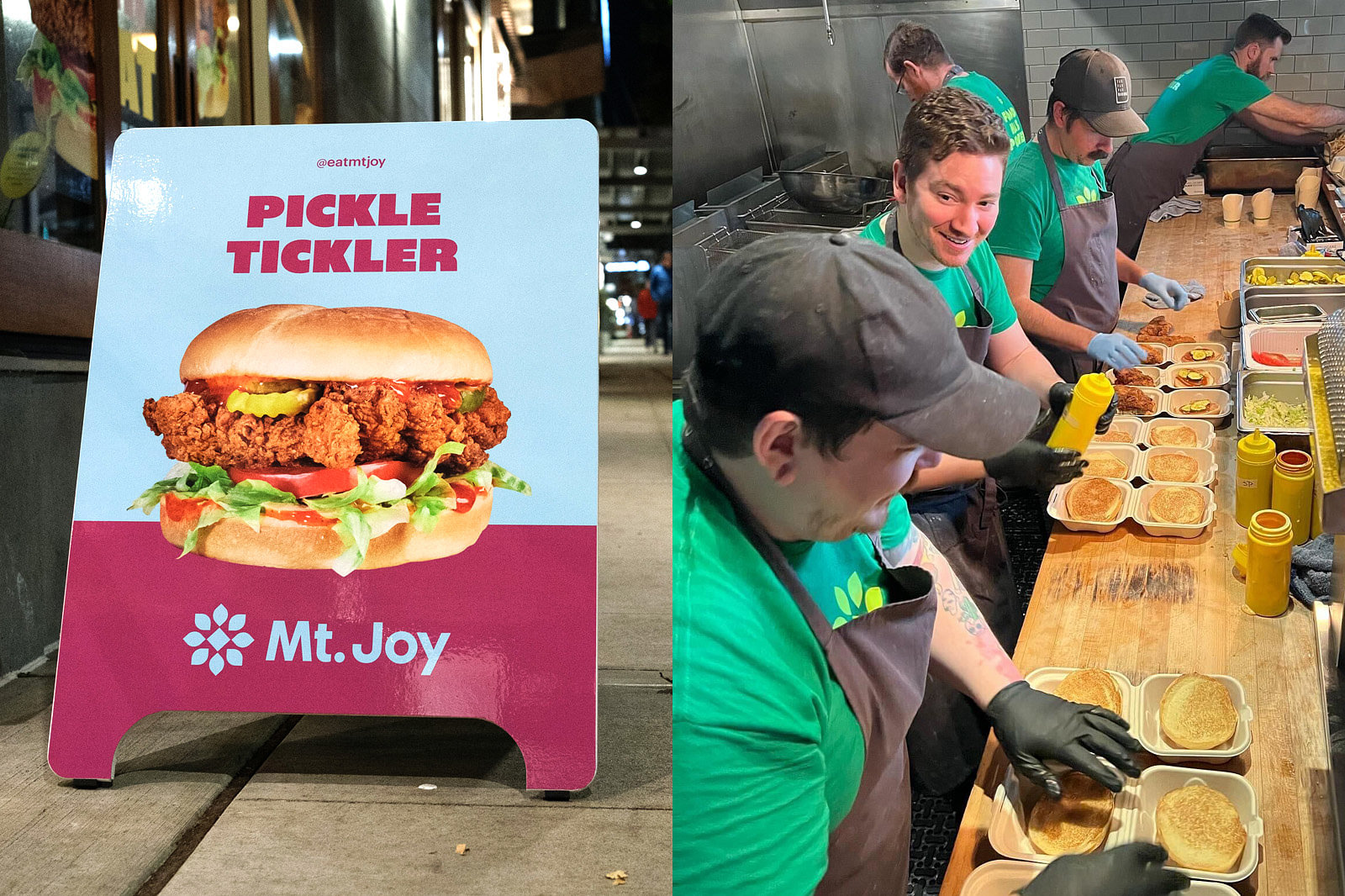
So instead of trying to make our mission the hook, we focused on fun and food first. We used bright colors, dance music, and edgy headlines that referenced pop culture. I even hired an all-female breakdance crew to perform at the restaurant.
None of these things speak literally about the importance of regenerative agriculture. But all of them serve as a means to an end.
I wanted Mt. Joy to feel like a party. Because parties attract a crowd. And crowds change culture.
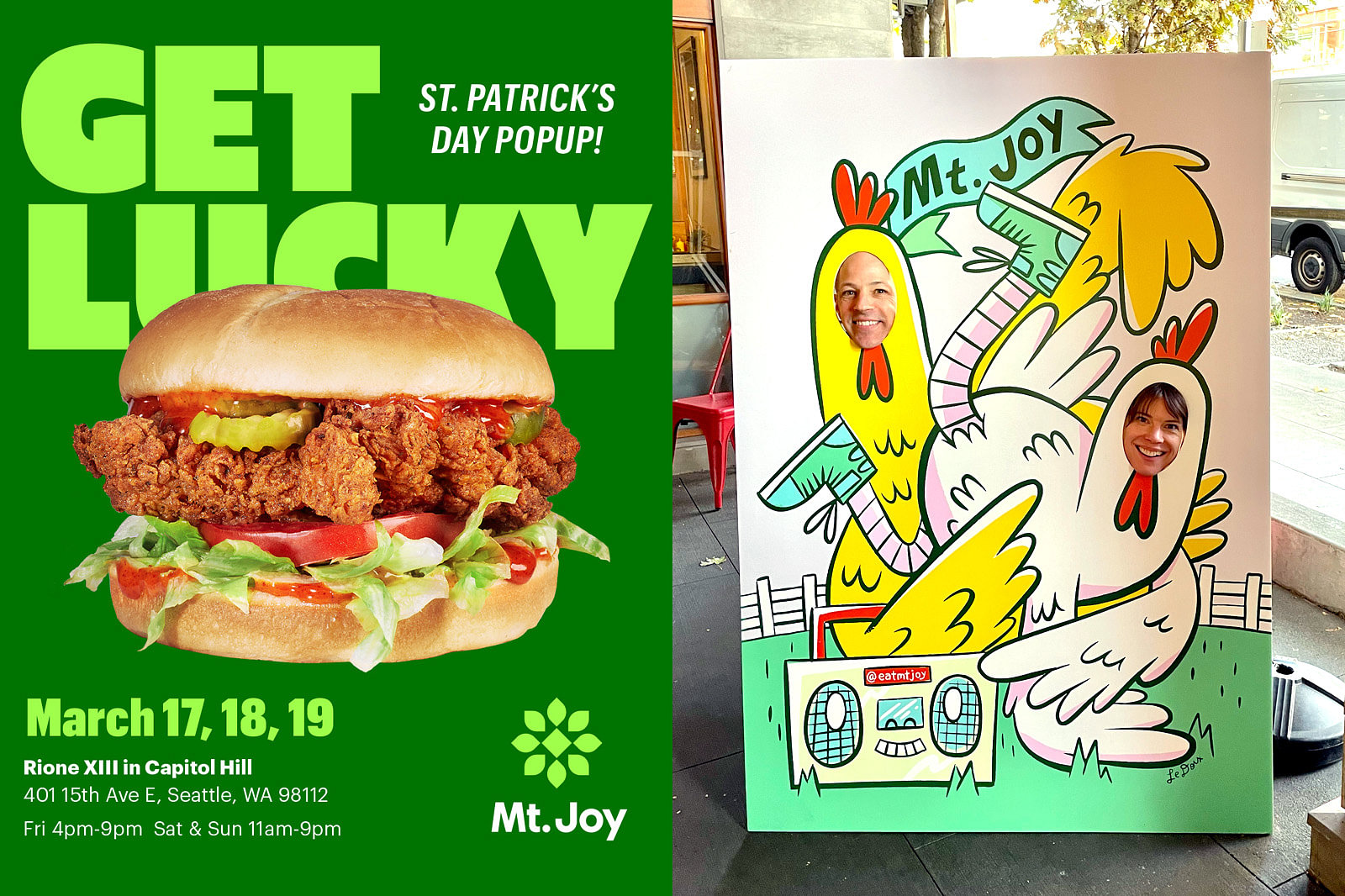
Of course, I didn’t want to hide our mission. I just wanted to make it accessible. So I wrote a simple tagline that captured our ethos, “FOOD HAS POWER”.
This sends a strong signal and leaves a blank space to be filled in. Power means change. And yes, we’re talking about big change — of our industrial food system. But the statement is also a thank you to customers. It’s an encouraging reminder that everyday choices make a big difference.
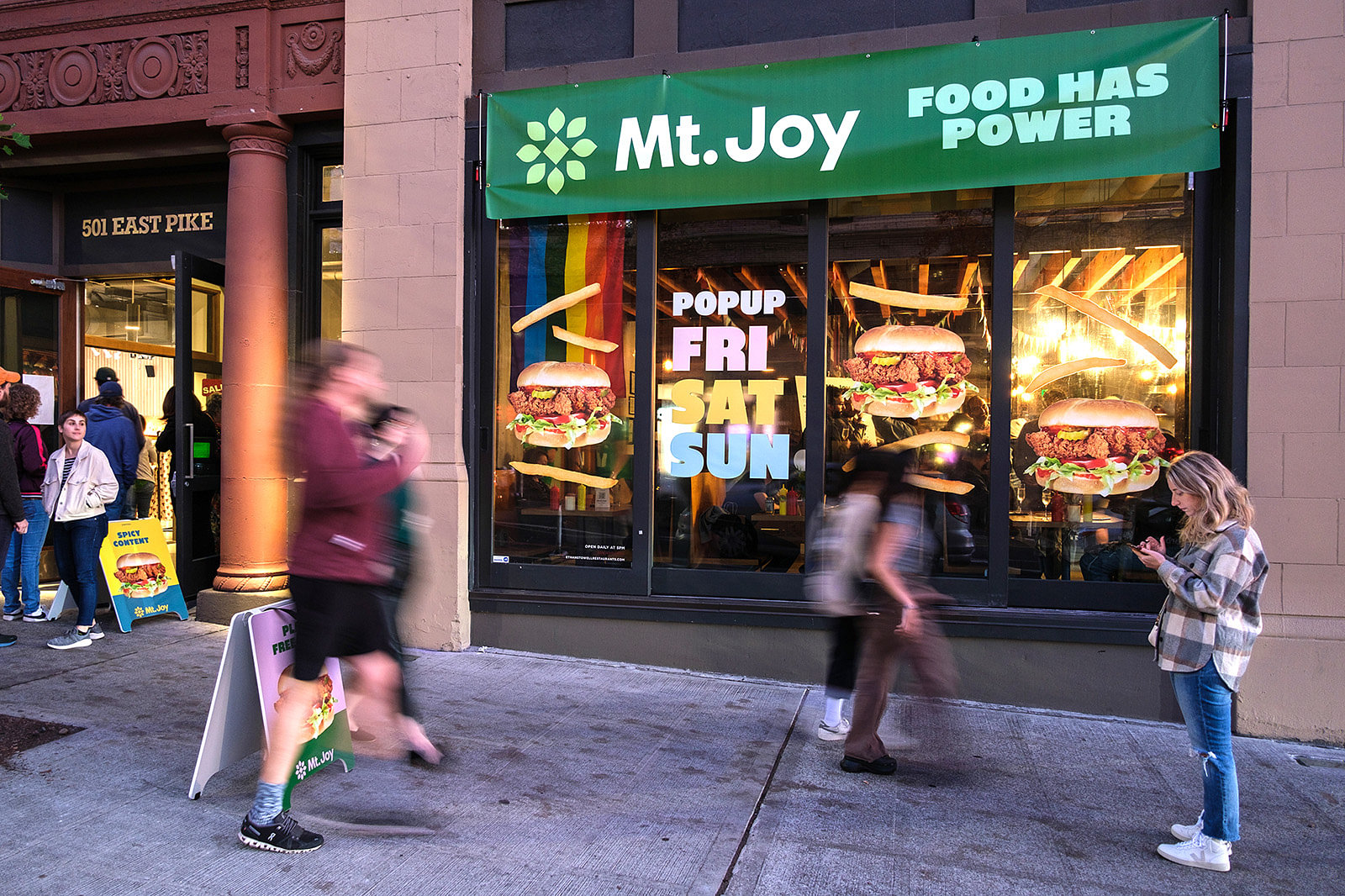
Make Activism Easy
I believe regenerative brands need to think about the movement through the lens of change management.
Consumers are weary, even those with the best of intentions. Climate change and other existential threats are scary and overwhelming issues. And despite many people’s desire to help, few know where to start.
If we want to change the world — and change it FAST — we need to provide consumers easy access to activism.
People generally resist change. Unless you make it fun.
And that’s the definition of a Trojan Horse Strategy.
So let’s be creative. Let’s connect with culture. And let’s make it easy for people to join the regenerative agriculture movement!
Hi, I’m Pat Snavely 👋. I'm a Seattle-based Brand Strategist who specializes in consumer products, and I'm especially fond of helping mission-driven brands create impact.
Editor's Note: The views expressed in this article are the author's alone and do not necessarily represent those of the ReGen Brands platform or team.
